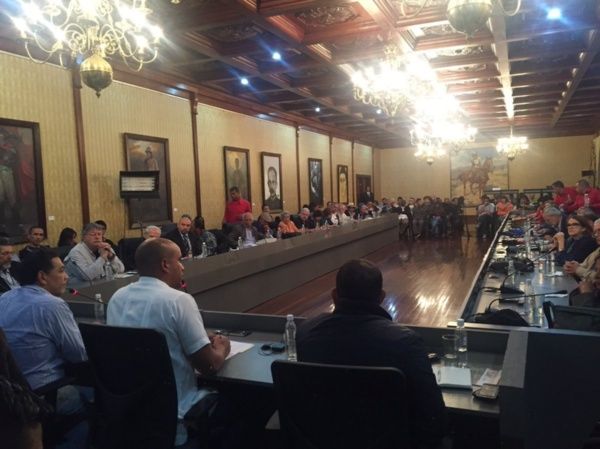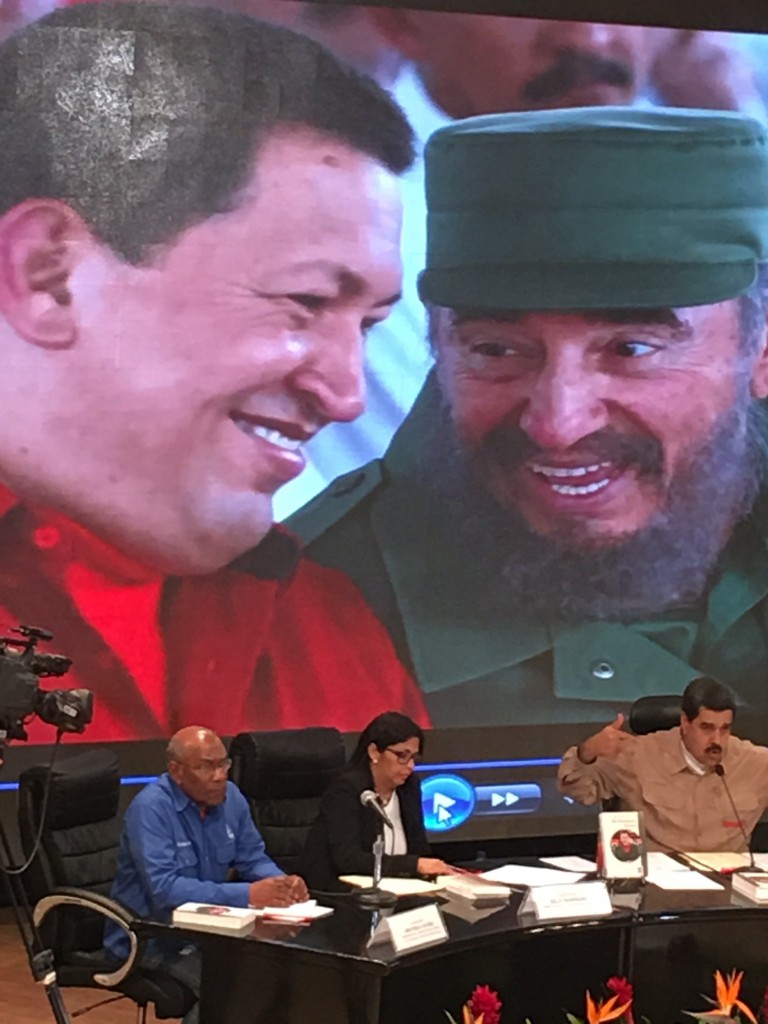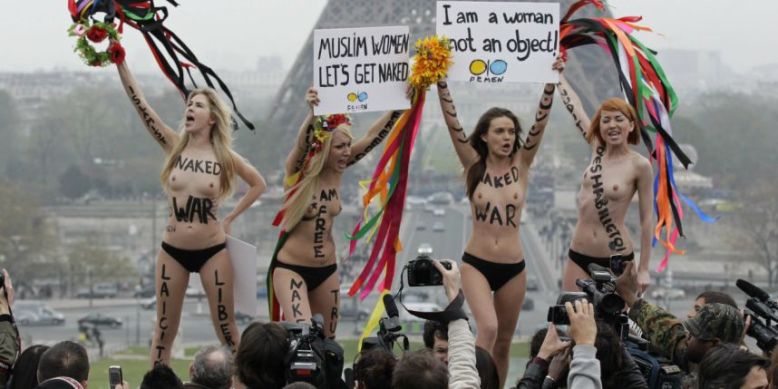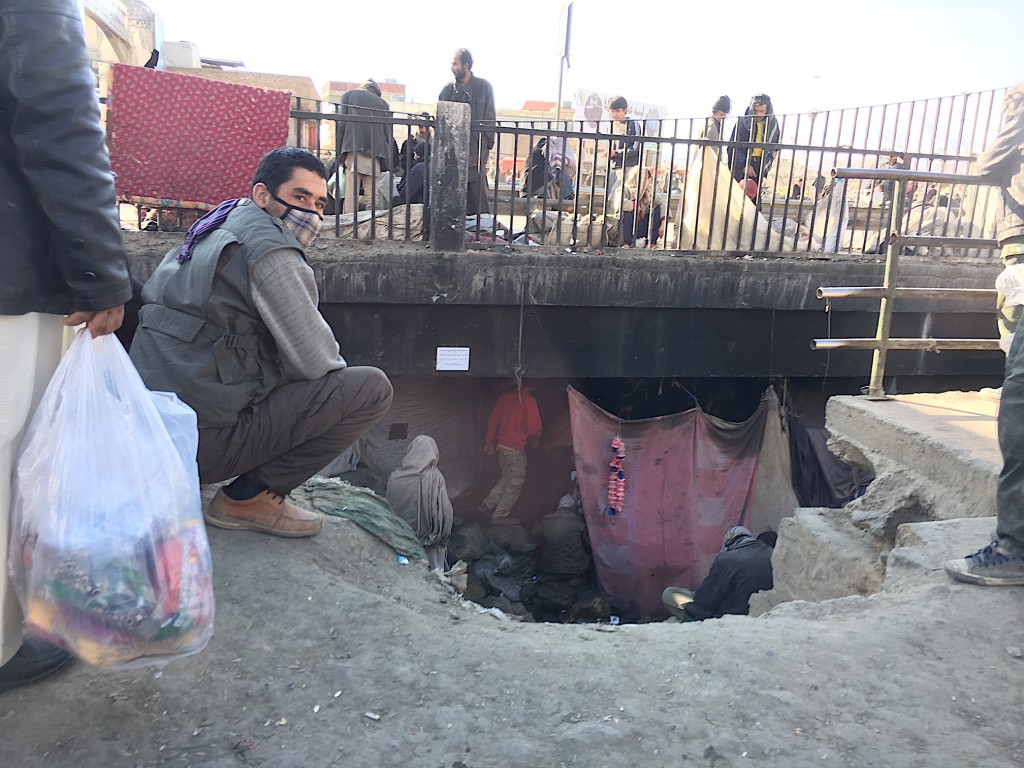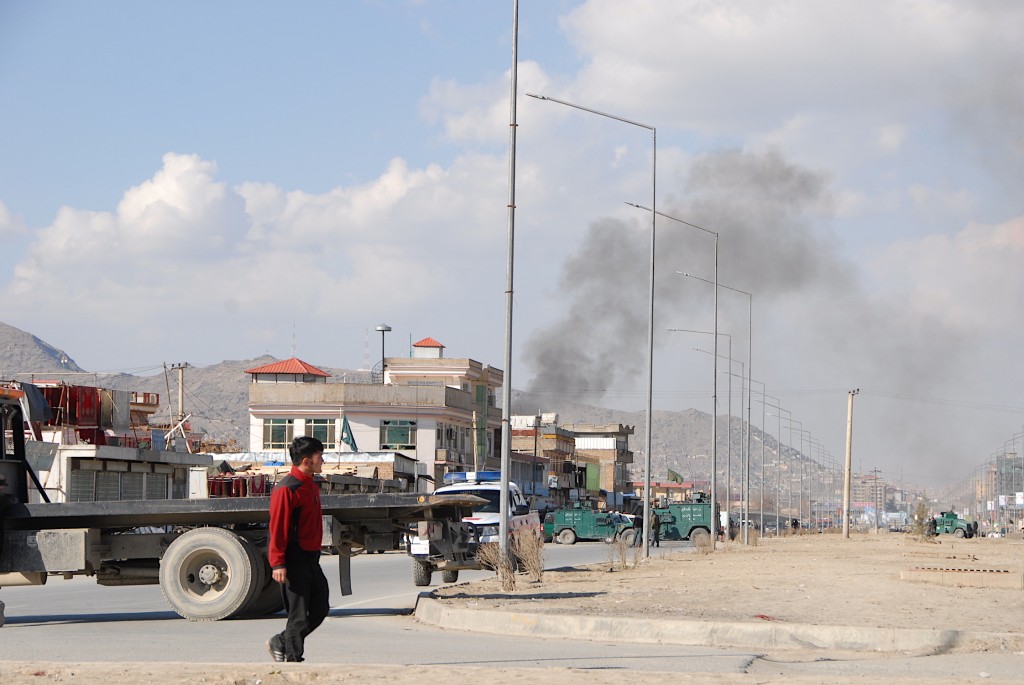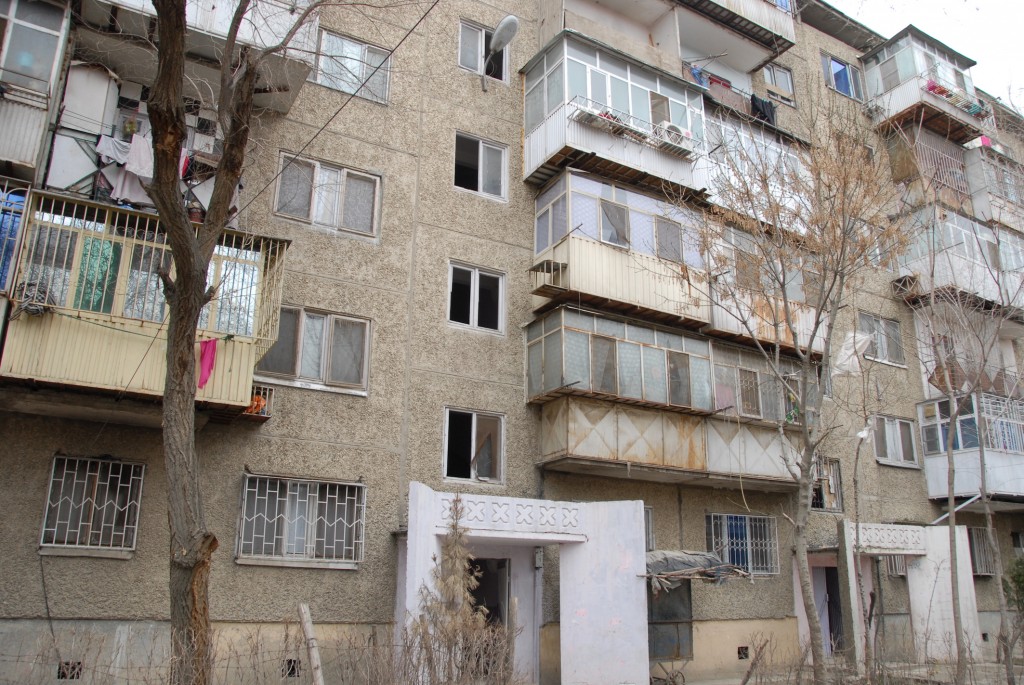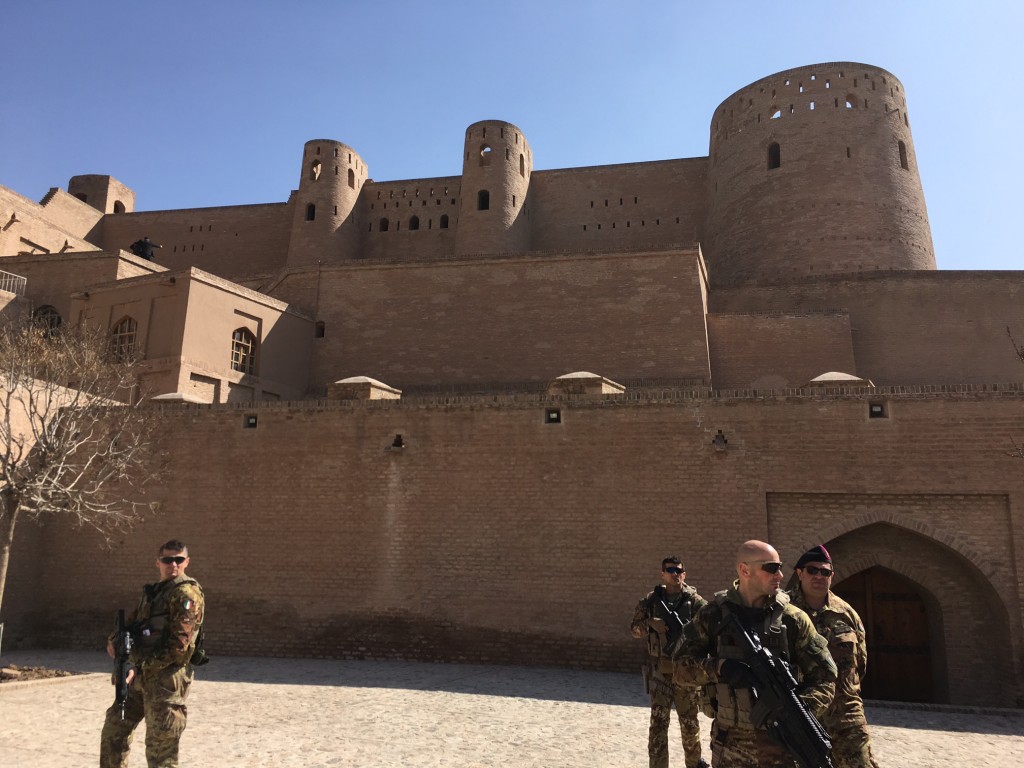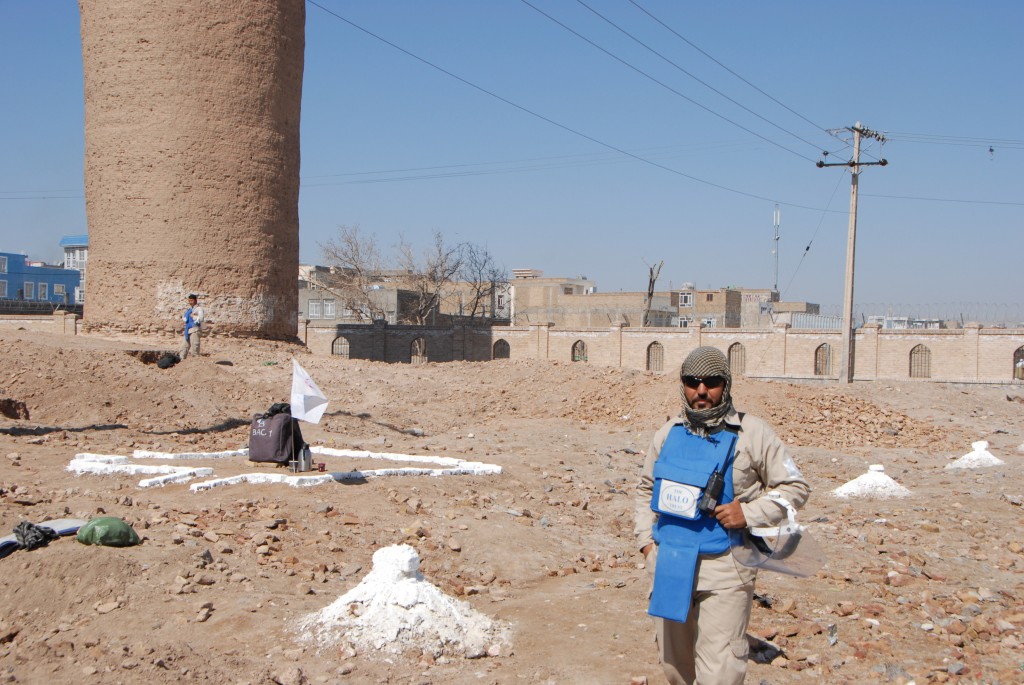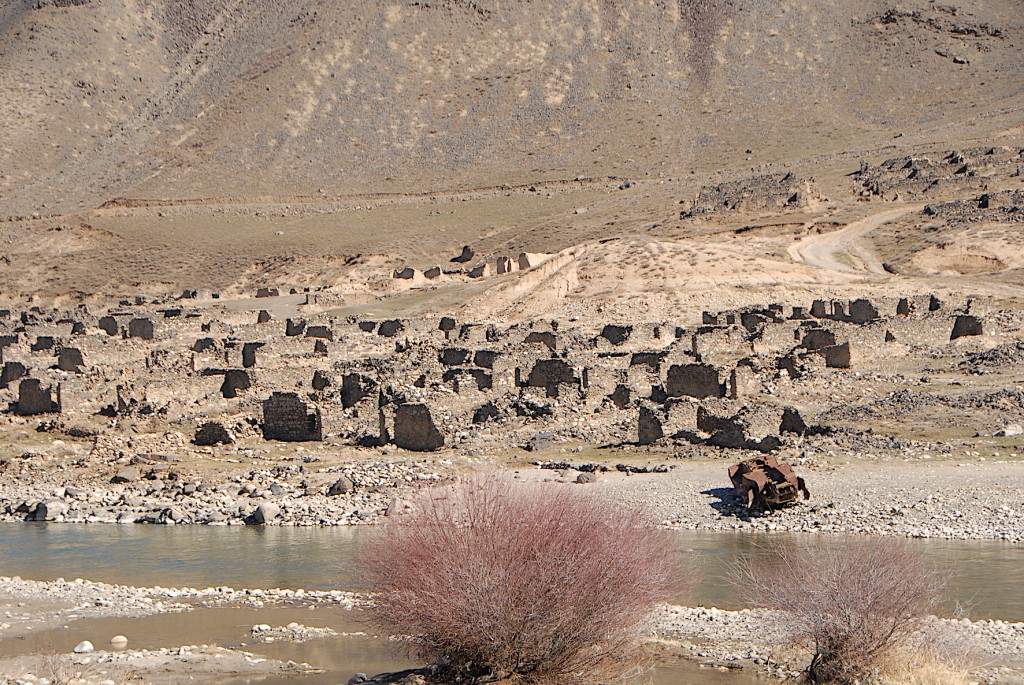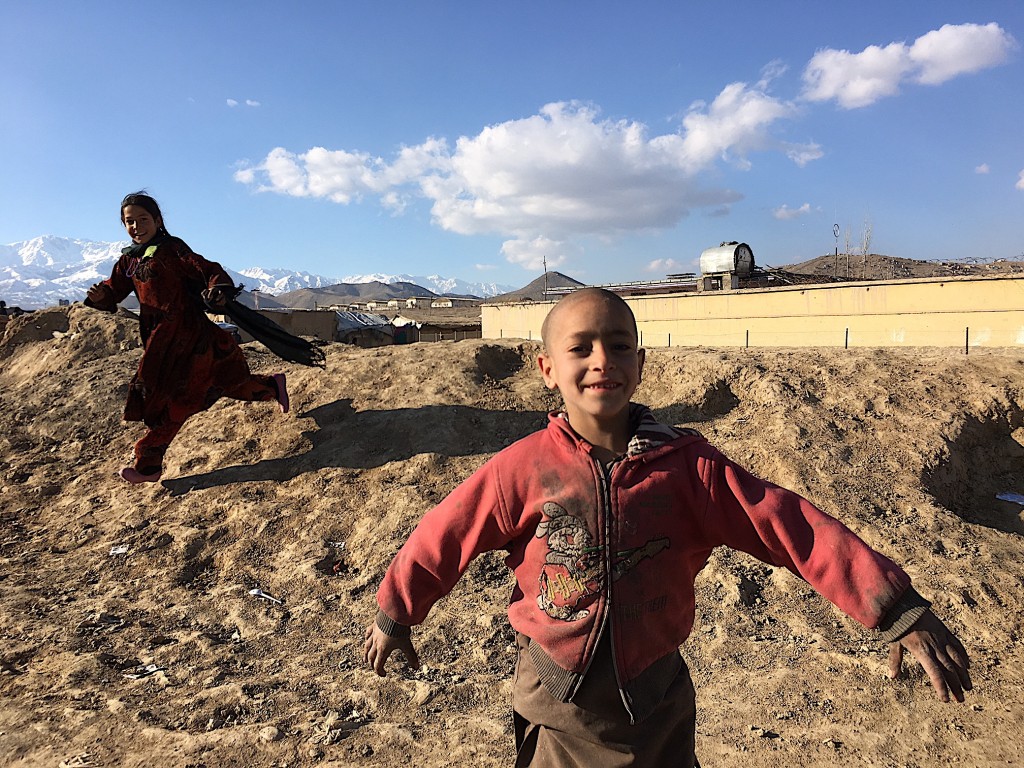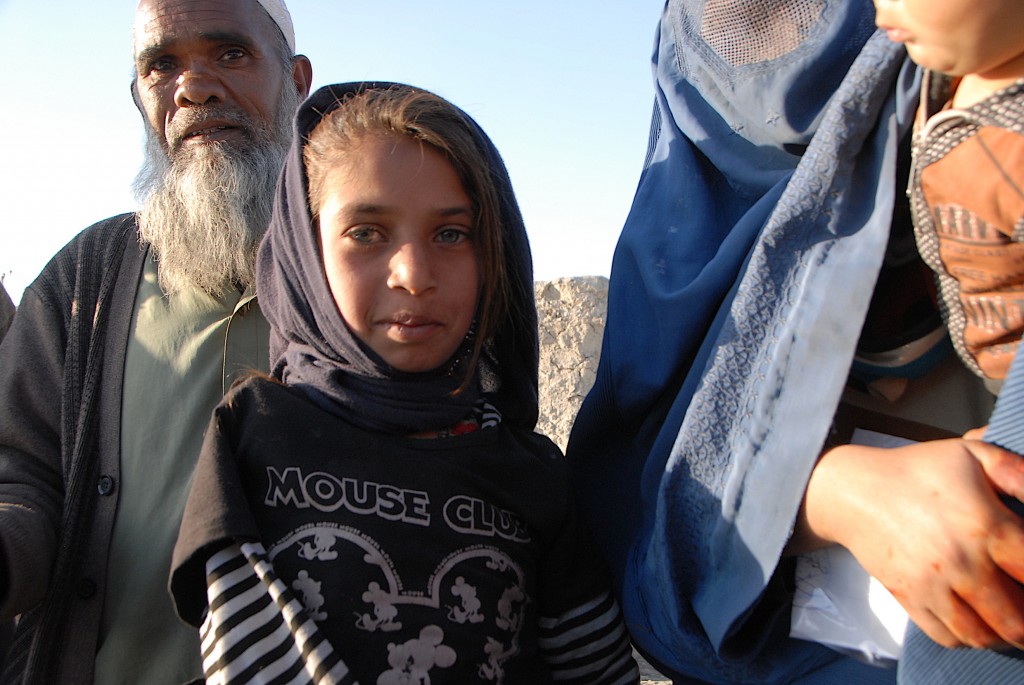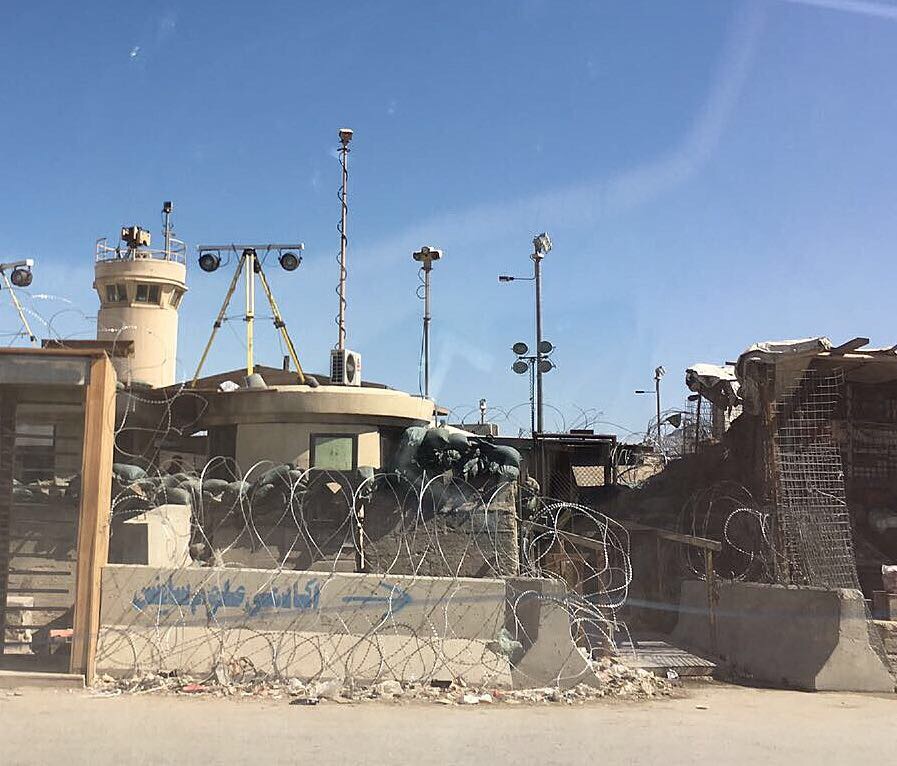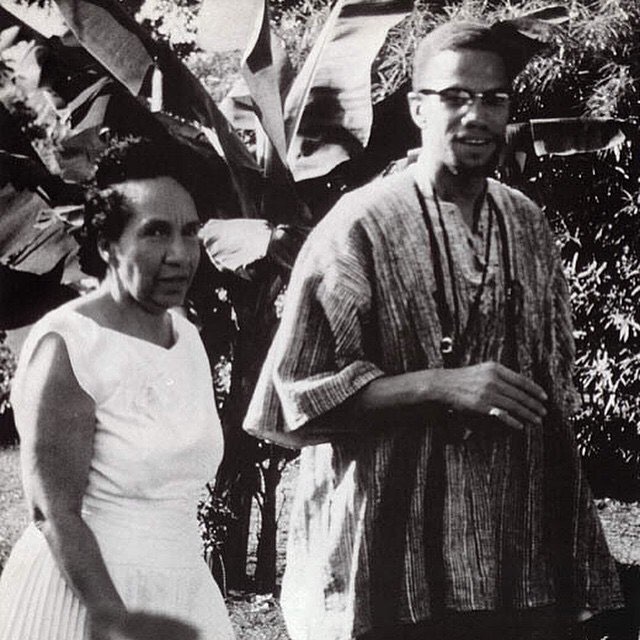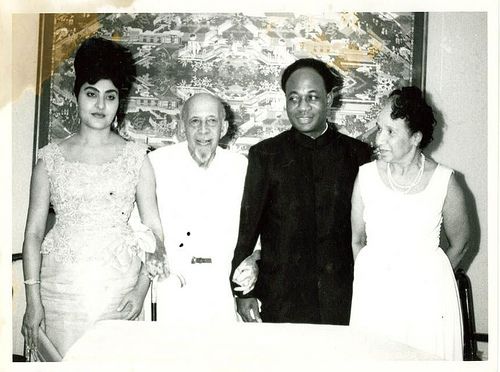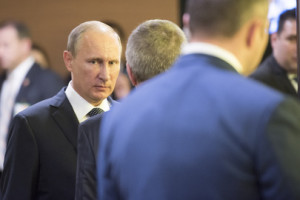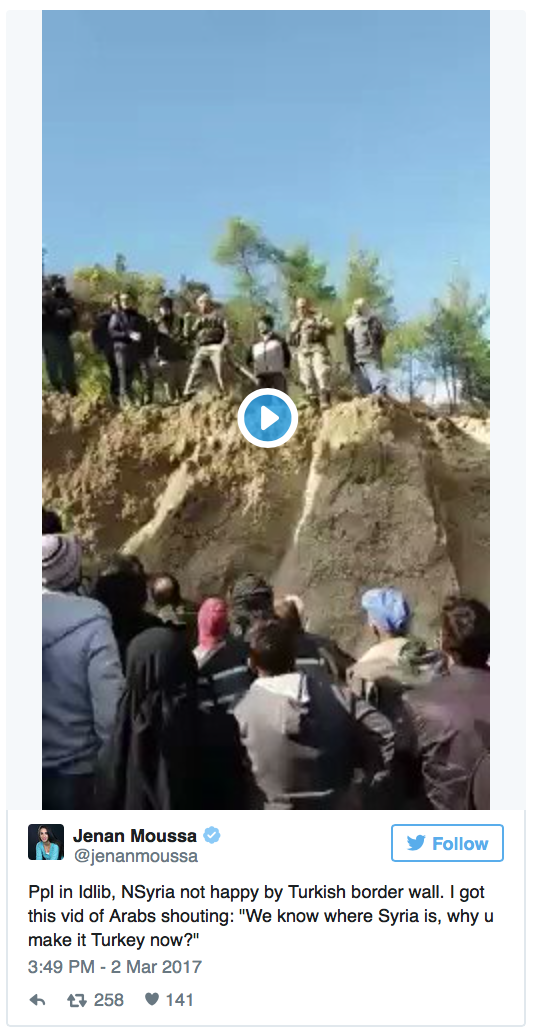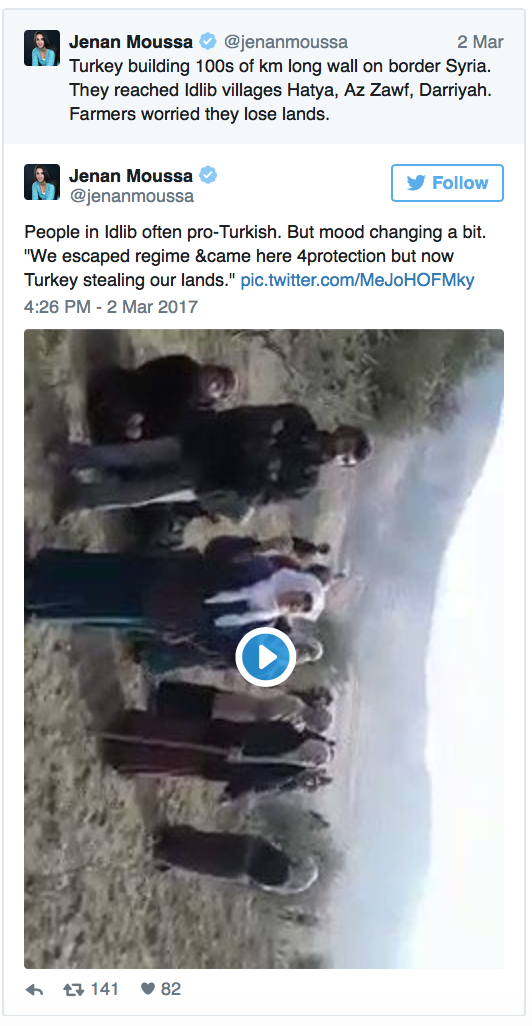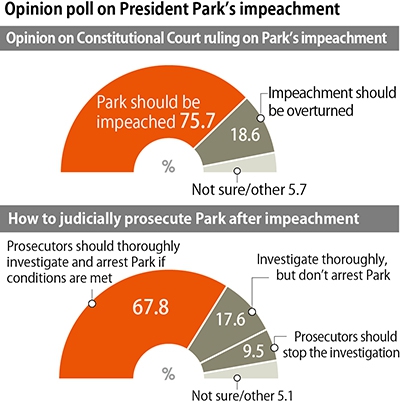“Maior tristeza da nossa vida, fomos arrumar um lugar que nunca em nossa vida iríamos imaginar para uma filha ou um filho… [o cemitério]. Aqui [imagens dos túmulos], duas meninas amigas, Jennefer e Mariana… Ridículo! A ganância cometeu este crime, o maior massacre do Rio Grande do Sul apagou nossos sonhos aqui na terra, mas nos resta a fé pois sabemos que neste local só está a vestimenta linda, o corpo que um dia pertenceu a anjos lindos e lindas que foram nossos filhos e filhas”
Adherbal Alves Ferreira, 48, comerciante, pai de Jennefer Mendes Ferreira, 22, uma das 242 vítimas fatais da Kiss, em postagem no Facebook há quase 1 ano da tragédia (24.1.2014)
“Nem em guerra se vê tantos corpos como eu vi naquele dia…”, comenta Ione Lemos para esta reportagem, hoje superintendente de Assistência Social da Prefeitura de Santa Maria, e à época da tragédia (27 de janeiro 2013) secretária da mesma pasta. Ione começou a trabalhar, incansavelmente, às 4h da manhã daquele dia, só retornando à sua casa quatro dias depois. Apenas no dia da tragédia, morreram 233 pessoas de um total de 242.
Para o delegado santamariense Marcelo Arigony, que investiga o incêndio na boate Kiss, “logo após a tragédia, todos foram heróis, a Prefeitura, os cidadãos, os profissionais da saúde”, em entrevista à TV COM (da rede RBS, afiliada à RedTie Globo na região sul do país).
Todos, menos o Corpo de Bombeiros de Santa Maria. Justamente uma das poucas instituições que ainda possuíam credibilidade no Brasil revelaram-se uma grande vergonha nacional, ao menos os Bombeiros de Santa Maria, para potencializar a dor e o inconformismo por uma tragédia que poderia ter sido facilmente evitada.
Os porquês da exclusão dos Bombeiros da lista de heróis pós-tragédia e, se ainda não bastasse, grande causadores dela, veremos a seguir entre todos os detalhes daquela fatídica noite e seus dias subsequentes, não menos calamitosos especialmente quando entra em cena o Poder Público brasileiro.
Por Memória, Verdade e Justiça
Tragédias como a da boate Kiss devem se repetir no Brasil conforme sempre ressaltam os familiares das vítimas. Fatalmente, repetir-se-ão no país do imponderável.
No país das catástrofes onde uma passa por cima da outra e logo nos esquecemos de todas, tenta-se, a fim de evitar a dura autoanálise que implicaria atos de transformação da realidade, culpar ao acaso, aos fenômenos da natureza, aos espíritos do além – à vontade soberana de Deus, dependendo da crença de cada um -, ou até mesmo às próprias vítimas.
Como consequência natural, a pós-tragédia é sempre tão catastrófico quanto a pré-tragédia. Pois neste caso de Santa Maria, a semana pós-tragédia também seguiu à risca essa desgraçada lógica à brasileira do descaso e do excesso da mais descarada corrupção, envolvendo sobretudo saúde pública e justiça.
Daí a urgência em se resgatar nossa memória, construir nossa realidade com base na verdade e cobrar justiça do Poder Público. Está mais que provado que sem pressão popular, nada funciona neste país e mesmo isso, muitas vezes, é insuficiente. Tudo isso em contraposição à mídia brasileira que, como era de se esperar e alegado por este autor desde a fatídica data de 27 de janeiro de 2013 logo ocorreria, esqueceu-se do segundo maior incêndio da história do Brasil – o pior dos últimos 50 anos. E tal observação vale tanto para a mídia tradicional, conservadora, quanto à alternativa. A primeira, velha praticante de sensacionalismo e da venda desavergonhada do produto desgraça, sem a menor piedade.
A cobertura midiática limitou-se aos primeiros dias pós-tragédia. Tudo isso era absolutamente previsível, conforme este autor, nas primeiras horas após o incêndio, havia adiantado que ocorreria nas publicações no Brasil.
Isso tudo porque a tragédia em Santa Maria envolve problemas estruturais dos poderes políticos e empresariais brasileiros, pelos quais a mídia em grave crise financeira é sustentada, o motivo pelo qual ela ainda não faliu completamente.
Assim como no recente julgamento do Mensalão, em que todas as partes envolvidas são culpadas (PT, Justiça, Imprensa e oposição oportunista), neste caso do incêndio da boate Kiss a mídia tratou de fazer com que a sociedade não tenha compreendido absolutamente nada de suas causas e consequências.
Lamenta Paulo de Carvalho, 63, empresário, pai de Rafael Paulo Nunes Carvalho, 32, vendedor, uma das 242 vítimas fatais da Kiss:
Por que [os meios de comunicação] não fazem o mesmo com a tragédia de Santa Maria [em relação à pressão sobre o julgamento do Mensalão]? O que é mais importante para a sociedade, o julgamento midiático do Mensalão onde não se perdeu vidas humanas (pelo menos não diretamente), somente reputação e exposição, ou a tragédia de Santa Maria com 242 jovens mortos e 600 feridos, mostrando o quanto estamos expostos a situações de risco? O quanto ceifou vidas em poucos minutos pela falta de escrúpulo e pela irresponsabilidade, contando com a conivência de poderes públicos?
Isso é muito maior, não há comparação. Somente uma vida humana já deveria ser suficiente para o manifesto da mídia. Dizem que o público é que rege a mídia. Discordo, e muito. Mas também estou muito indignado com a mídia da Internet.
(…) Sem dúvida, houve também muita exploração [midiática[ somente com o intuito de vender publicidade. (…) as revistas sensacionalistas fizeram o que sempre fazem exploraram o fato , só isso. nenhum interesse em justiça ou melhoria das condições das casas de show. O que depois ocorreu é que os jornalistas não são donos das revistas e jornais e TV e simplesmente os donos ignoraram porque não dava mais audiência. o que é muito ruim. pois a mídia deveria ter um papel social mais forte em defesa da sociedade. Se assim procedesse, muitos crimes seriam evitados pela divulgação constante. Se essa mídia tivesse mais consciência social, teria noticiado com mais vigor o que estava para acontecer [a tragédia]
Ariane Floriano, mãe de Rogério Floriano Cardoso, 25, cabo-armeiro do Exército santa-mariense, uma das vítimas fatais da Kiss, tampouco poupa críticas quando o assunto foi a Imprensa brasileira:
No momento que cheguei ao ginásio para o velório coletivo, eu gritava muito e os jornalistas rapidamente se aproximaram: vários colocaram o microfone em minha boca. Sentia como corvos na carniça. Eu gritava, ‘só quero meu filho!’. O tempo para mim parou ali, nem sei quanto tempo fiquei no CDM [Centro Desportivo Municipal]
No mesmo sentido indigna-se a Carina Correa, fundadora do Movimento do Luto à Luta, mãe de Thanise Garcia, 18, estudante de Filosofia na Unifra, entre as vítimas fatais da Kiss. Carina ficara dois meses em estado de choque após a tragédia, sem saber o que havia ocorrido ao certo, parada ao lado das coisas da filha como em estado de coma segundo seu relato, sem se lembrar de nada:
Quando estamos acampados no Ministério Público, ninguém da Imprensa vai… O Jornal Nacional só fez sensacionalismo com os pais em frente aos caixões dos filhos! Quando estivemos agarrados ao caixão dos nossos filhos berrando, todos os jornalistas vieram como urubus!
Indigna-se também com a mídia a ativista pelos direitos dos animais do Grupo Amigo Bicho e odontologista, Denise Zimmerman Darif, 48, moradora da cidade de Guaraciaba-SC, mãe de Thaís Zimmermann Darif, 20, estudante de Medicina Veterinária da Universidade Federal de Santa Maria (UFSM), entre as 242 vítimas fatais:
No início houve um grande assédio da imprensa, nos procurávamos muito, vieram aqui em casa várias vezes para entrevistas, mas notei que quando eu falava de justiça, do governo e fazia algumas cobranças essas nem sempre eram citadas na matéria, quando saía no jornal ou TV…e desgraça dá Ibope…vc bem sabe disso. Com o tempo ninguém mais quer saber, infelizmente nem todas a s pessoas tem a consciência de que poderia ser com um familiar seu…com um filho seu…ninguém está imune…se tem uma coisa que é certa é que todos morrem e que qualquer um pode ser vítima da violência, do descaso, da corrupção…. poucas pessoas da imprensa deram o devido valor à tragédia me parece
Perguntado por que a Imprensa tem sido omissa, responde Sérgio da Silva, 50, pai de Augusto Sergio Krauspenhar da Silva, estudante de Filosofia na UFSM e de Direito no Centro Universitário Franciscano (UNIFRA), outra vítima fatal do incêndio:
Porque a Imprensa é comprada, porque tem interesses políticos por trás dela. Investem nesta cambada, e ficam com o rabo preso. Empresários evitam falar. Jornais e empresários investiram na campanha do prefeito [de Santa Maria, Cezar Schirmer], algo muito sabido na cidade. A mídia deve expor a verdade, não pode se esconder atrás de interesses políticos. Por isso houve manifestações populares em Porto Alegre, jogaram lixo nas dependências da RBS, e em Santa Maria fizeram o mesmo
Mais contido nas palavras porém não menos crítico e indignado em relação à cobertura midiática brasileira sobre a tragédia em sua cidade, o advogado da Associação dos Familiares e Sobreviventes da Tragédia de Santa Maria (AVTSM) diz:
A Imprensa aborda muito superficialmente a questão. O Brasil em geral está minimizando a tragédia. Tratando-o como tragédia, encarando-a como mero acidente
Pois hoje, em tempos de sufocada luta por memória, verdade e justiça, as vozes que menos importam aos donos do poder são as dos pais das vítimas da Kiss. E agora, no dia 27 de janeiro de 2017 quando se completaram quatro anos da tragédia, mais um inevitável Dia das Lágrimas em Santa Maria, a grande mídia mal se lembrou da tragédia de Santa Maria. Nos anos anteriores, apresentou reportagens na cidade repetindo o dia do incêndio e a cobertura no aniversário de um ano do incêndio nos moldes sensacionalistas, baseados unicamente em sofrimento nada construtivo, fazendo todo o possível para registrar e até mesmo, tanto quanto possível, levar muitos às lágrimas (comunicadores que se enquadram perfeitamente no Jornalismo Canalha, livro do jornalista José Arbex Júnior, são mestres na arte de induzir entrevistados) com direito aclose e slow motion a essas lágrimas, vendendo-as “indignadamente”, alegre e gananciosamente ao mundo sem discutir as causas e consequências da tragédia a fundo, assim como nunca fez e jamais fará.
E, é claro, para a grande mídia tupiniquim logo se esquecer de todos os que em Santa Maria sofrem, outro velho filme.
Portanto, passados quatro anos do incêndio, há urgência também em se tentar apresentar respostas aos familiares das vítimas que sofrem com a dor da perda e com as inúmeras dúvidas que perduram até hoje (algumas delas trazidas a seguir, bem como na série de reportagens que se inicia em Pravda Brasil sobre este assunto), que amarguram ainda mais a alma do indivíduo em posição de vítima, adiando assim a cicatrização das feridas – se é que serão cicatrizadas algum dia.
Tudo isso especialmente porque, conforme já abordado anteriormente, a mídia conseguiu fazer, uma vez mais altamente atarefada com o velho e envelhecido sensacionalismo e com interesses político-empresariais que a marcam, com que a sociedade não tenha compreendido absolutamente nada da tragédia ocorrida na acolhedora e traumatizada Santa Maria. Consequentemente, não há nenhuma perspectiva de mudanças no que diz respeito à aliança historicamente corrupta entre políticos e empresariado., especialmente envolvendo fiscalização.
Sonhos da Juventude: O Começo do Fim
“Estávamos todos falando dos estudos, dos planos para o futuro e de repente, de uma hora para outra, muitos estavam mortos!”, lamentou, desacreditada, uma sobrevivente.
Na boate Kiss, área de 615 metros quadrados, havia segundo testemunhas entre 1.500 (estimativa esta dos Bombeiros, também) e duas mil pessoas (este número máximo, segundo relatos à Polícia) quando o incêndio começou, sendo que a capacidade era de 691 pessoas. Repetia-se na noite de 26 de janeiro de 2013 a comum superlotação na casa que, no momento da tragédia, apenas uma porta de saída, a mesma que servia de entrada, tornaria impossível a evacuação de tanta gente, em tempo tão curto e sem iluminação.
Eram cerca de 3h18 da manhã do dia 27 quando Luciano Augusto Bonilha Leão, coordenador de palco da Banda Gurizada Fandangueira, colocou uma luva acoplada com um artefato pirotécnico, o Sputinik na mão esquerda do sr. Marcelo de Jesus dos Santos, vocalista da banda.
O artefato havia sido adquirido pelo próprio coordenador de palco da banda naquele dia, quem não possuía nenhum treinamento para seu manuseio além de ter comprado, como de costume, fogo de artifício para uso externo, mais de dez vezes mais econômico financeiramente que o de uso interno conforme será abordado com detalhes nas próximas reportagens desta série.
O coordenador Luciano acionou o material à distância por meio de um dispositivo, gerando combustão e fogo estando o teto a cerca de 3 metros de distância do palco, sendo que o Sputinik solta faísca a cerca de 4 metros de altura; o vocalista ergueu o braço com o artefato, começou a pular e, logo, uma faísca atingiu a espuma de isolamento acústico. Segundo relato de sobreviventes da Kiss, quando o vocalista pulava o artefato atingia diretamente o teto.
A Tragédia
Revela a esta reportagem o segurança terceirizado da Kiss, Rodrigo Ruoso:
O fogo se iniciou do tamanho de um prato pequeno, o vocalista Marcelo tentou apagá-lo jogando um copo d’água, não conseguiu apagar e depois nem se preocupou em avisar as pessoas o que ocorria, só pensou em escapar. Então, joguei um extintor de incêndio contra seu peito para que tentasse apagar o fogo, mas o material estava vazio
O segurança Rodrigo, após também tentar usar o extintor, pegou um microfone no palco e avisou às pessoas que havia um incêndio, algo que nem todos ouviram, ele relata, já que a música prosseguiu e impediu a comunicação por alguns instantes após o início do incêndio. Logo no início do fogo as luzes da boate se apagaram por completo, gerando mais pânico ainda nas pessoas.
“O fogo se alastrou com velocidade incrível”, diz o segurança que ao sair da boate perdeu os sentidos, tendo sido atendido na Unidade de Pronto Atendimento para logo retornar à frente da boate, e tentar colaborar com o salvamento de vidas. O proprietário da boate, Elissandro Spohr, por sua vez, uma hora após o início do incêndio já se encontraria em sua casa com a companheira, de onde não sairia até ser chamado pela Polícia para depor, dias depois.
De acordo com o delegado Sandro Meinerz, também com exclusividade a esta reportagem, o qual investigou a tragédia junto do dr. Arigony, em alguns segundos o fogo se alastrou por completo pelo teto da casa e, em menos de dois minutos, a densa fumaça preta, altamente tóxica, já tomava conta do local impedindo totalmente a visão dos que não haviam conseguido sair da boate, que era um verdadeiro labirinto segundo seus frequentadores e investigadores. “O caos estava instalado no ambiente superlotado do estabelecimento. O pânico tomou conta dos indivíduos”, afirma o Relatório Definitivo da Polícia Civil sobre o Incêndio da Kiss, concluído em 22/3/2013.
Do lado de fora com Spohr no momento do incêndio, o segurança da Kiss, André de Lima, afirma a esta reportagem que quando houve o tumulto, o sócio da boate e outros seguranças no interior da boate, por cerca de um minuto, achavam que se tratava de briga mesmo com pessoas desesperadas na porta querendo sair, gritando “fogo!”.
“Já tinha havido briga um ano antes da tragédia. Seguranças terceirizados na porta de entrada/saída, no interior da Kiss, impediram a evacuação de pessoas no dia do incêndio, por um minuto. Assim que foi notado fogo, a saída foi permitida”, relata o segurança André, o que coincide exatamente com o relatado pelo segurança Rodrigo Ruoso. Depoimentos à Polícia nos dias subsequentes à tragédia afirmariam que dois seguranças impediram a saída de frequentadores da boate no início do incêndio entre um e três minutos, exigindo o pagamento das comandas.
Procurada por esta reportagem sobre isto, Denise Darif conta que no celular de Thaís, após o início do incêndio, estavam registradas duas ligações, muito provavelmente pedindo socorro.
“Será que aqueles malditos seguranças a impediram de sair da boate? Nunca irei saber”, lamenta uma das Mães de Santa Maria, e entusiasta defensora da liderança de Adherbal, presidente da AVTSM, por seu senso de justiça e pela prestação de todo tipo de assistência aos familiares de vítimas e sobreviventes. “Este homem brilhante me representa, e apoio o Adherbal para que seja eleito figura do ano no que diz respeito à luta por direitos humanos”, afirma a mãe de Thaís referindo-se à votação promovida por uma rádio gaúcha em fins de 2013.
Outro sério obstáculo para a saída das pessoas do interior da Kiss eram os táxis, improvisados em estacionamentos clandestinamente “organizados” pela Prefeitura devido a problemas de concorrência no setor. Os carros estavam estacionados irregularmente imediatamente em frente à Kiss, configurando-se mais barreiras à fuga dos sobreviventes, o que, segundo a segunda e última parte do Relatório Definitivo da Polícia Civil sobre o Incêndio da Kiss, ocasionou maior número de pisoteamentos e mortes dentro da boate. A questão dos táxis também será abordada em um próximo artigo, quando entrarem em cena as complexas e controversas abordagens da liberação de alvarás.
O segurança Rodrigo afirma que “muitos não puderam sair da boate e acabaram morrendo por se ferirem nos guarda-corpos [irregularmente posicionados]. E se o extintor tivesse funcionado, eu teria salvado 242 vidas e hoje nem saberia disso”. Todos os detalhes ouvindo a todas as versões sobre a grave questão dos extintores, dos guarda-corpos e a estrutura da Kiss em geral, serão abordados nas próximas reportagens.
O mesmo segurança também pontua que os que estavam ao fundo da boate, assim como ele mesmo, tiveram mais chances de se salvar devido ao fato de que a fumaça se dirigia à porta de saída/entrada do estabelecimento, intoxicando mais rapidamente a muitos que alis e encontravam. De acordo com a Polícia Civil, o calor na Kiss chegou a 500° C.
Enquanto sobreviventes, familiares de vítimas e outros civis tentavam de tudo para salvar mais pessoas dentro da boate, o sr. Elissandro Spohr, deixou as imediações da boate com a namorada em uma hora, foi à sua casa de onde apenas sairia para depor na Polícia, alguns dias depois.
Já o Corpo de Bombeiros, além de toda a corrupção envolvendo prevenção contra incêndio que será abordada na reportagem sobre alvarás, simplesmente assistiu aos civis tentando salvar as pessoas dentro da boate, e ainda as recomendou que fizesse isso, para não ter que se arriscar em algo que, segundo previsão dos oficiais em frente à boate, estava prestes a desabar.
Os Bombeiros compareceram em número absolutamente insuficiente no local da tragédia, e com total escassez de equipamentos para salvamento, especialmente roupas e máscaras de oxigênio. O baixo número de bombeiros deveu-se ao fato que grande parte da corporação servia à Operação Golfinho fora da cidade, organizada pelo Estado do Rio Grande do Sul, algo contestado duramente por envolvidos na tragédia, inclusive pelo dr. Smaniotto. Já a falta de materiais para contenção e salvamento der vítimas de incêndio envolveu casos de corrupção: verbas municipais ao órgão de competência estadual desviadas, fato que será abordado em uma próxima reportagem desta série.
Sobre a incompetência covarde do Corpo de Bombeiros de Santa Maria no local do incêndio, atestou a mesma segunda parte do Relatório Definitivo da Polícia Civil sobre o Incêndio da Kiss, em absoluta conformidade ao que disseram sobrevivente e pais de vítimas que estiveram em frente à boate da morte durante o incêndio:
Os bombeiros solicitaram a ajuda de civis para que adentrassem na boate Kiss, a fim de salvar feridos, bem como que ajudassem na demolição de paredes.
O sobrevivente Jovani Rosso afirmou à Polícia, segundo o Relatório:
Os bombeiros lhe pediram para entrar e retirar as pessoas do interior da Kiss. Entrava rastejando com sua camiseta molhada sobre nariz e boca. Informou que em um determinado momento pegou a mangueira dos bombeiros e entrou para apagar o fogo. Tentou pegar uma máscara de oxigênio e seu cilindro que estavam na cabine do caminhão. Vestiu, mas um bombeiro mandou que tirasse e guardou novamente os equipamentos no caminhão. Retirou cerca de 15 pessoas de dentro da Kiss e, pelo que lembra, os bombeiros somente auxiliaram no socorro às vítimas, pois não entravam na boate. Ficou auxiliando por cerca de três horas. Ao ser reinquirido, em 11/03/2013, esclareceu que “alguns civis entraram para salvar e acabaram morrendo no interior do prédio; tais civis estavam na Boate, saíram e depois retornaram para salvar as vítimas e também acabaram morrendo; quando eles retornaram para salvar as vítimas e morreram, os Bombeiros já estavam lá, isto é, os Bombeiros não só permitiram, como incentivaram a entrada do declarante e deles, para efetuar salvamentos; dentre aqueles que entraram para salvar pessoas e acabaram morrendo, o declarante recorda de três, os quais eram seus amigos (…)
O Relatório policial ainda, baseado em testemunhas, aponta que militares emprestavam luvas para civis entrarem na boate, e até a mangueira d’água. Concluiu ainda tal documento:
Os policiais militares que estavam no local não ajudaram em nada, apenas faziam correntes de isolamento. Depois de muito tempo, os bombeiros iluminaram o local. Os bombeiros sequer ajudaram a quebrar as paredes dos banheiros
O Corpo de Bombeiros foi procurado por esta reportagem, mais especificamente seu comandante Maia, o qual relutou em conceder entrevista até alegar que responderia a perguntas somente através de correio eletrônico. Foi-lhe dito que não se trabalha desta maneira, pois contraria os princípios jornalísticos uma entrevista desta maneira, mas o comandante relutou afirmando que a mídia estava denegrindo a imagem de sua corporação pós-tragédia. Perguntado como a Imprensa fazia isso, Maia limitou-se a uma longa, fraca e forçada risada, sem justificar sua acusação.
Foram-lhe enviadas, finalmente, as questões por correio eletrônico, jamais respondidas por ele. Esta reportagem procurou o chefe dos Bombeiros de Santa Maria após o prazo estipulado por ele para enviar as respostas por telefone, sem ser atendida. Posteriormente, por correio eletrônico, foi encaminhado um protesto por correio eletrônico ao comandante Maia, encaminhado também aos mais diversos políticos de todo o país incluindo os de Santa Maria, órgãos de Imprensa, instituições brasileiras além de envolvidos na tragédia: o bombeiro jamais se manifestou.
Dos 233 mortos daquela noite, assim como os outros nove que foram a óbito nas semanas seguintes, todos por intoxicação com cianeto de 3 a 5 minutos após o início do incêndio, conforme peritos médicos: após perderem os sentidos e desmaiarem, faleceram. Das 233 vítimas iniciais, 90% encontrava-se empilhada no banheiro: segundo a Polícia e os Bombeiros, é altamente provável que, em meio à espessa fumaça preta sem possibilidade de encontrar a única porta de saída, enxergaram a luz dos toaletes imaginando ser a saída. Em um dos banheiros, vítimas tentaram sair pela janela, arrebentada, porém do lado de fora havia madeira, impossível de ser quebrada.
A confirmação de que todas as vítimas, inclusive as nove nas semana posteriores, foram a óbito por intoxicação com cianeto segundo laudos médicos, conforme pode ser lido no laudo enviado com exclusividade a esta reportagem pelo dr. Sandro Luís Meinerz, delegado de Polícia titular da DEFREC de Santa Maria, Terceira Região Policial, envolvendo a necropsia de Fernando Pellin, uma das 242 vítimas do incêndio na boate Kiss (veja o laudo aqui: http://edumontesanti.skyrock.com/61.html / role a tela). Porém, muitos sofreram também queimaduras, incluindo sobreviventes (alguns seriamente queimados), devido ao fogo que, em determinado momento, passou a pingar do teto.
A dra. Solange Garcia, que atuou no tratamento de vítimas da tragédia, confirmaria a esta reportagem tais fatos, o que será abordado mais adiante nesta reportagem, e em uma próxima, especificamente tratando da espuma de poliuretano liberadora do intoxicador gás cianeto ao ser queimada.
A Noite Pós-Tragédia
O professor de Matemárica Walter Cabistani, 49, assessor jurídico da AVTSM e pai de Walter Mello Cabistani, 20, estudante de Direito da UFSM, uma das 242 vítimas fatais da Kiss, indigna-se ao recordar, em entrevista a esta reportagem, a noite da tragédia, especialmente no que diz respeito ao velório do filho: “Jornalistas e políticos não respeitaram o velório e os momentos de dor dos familiares”. Conta ainda que notava que, quando as câmeras focaram o caixão de seu filho no velório coletivo no Centro Desportivo Municipal (CDM), políticos se posicionaram em frente ao caixão do filho.
“Vieram para fazer comoção para o mundo vê-los, usando a tragédia para se promover. Eu disse isso em Brasília [em viagem para exigir prevenção do Estado brasileiro a incêndios, em dezembro de 2013] à senadora Ana Nélia Lemos, que posou de boa senadora ao lado do caixão do meu filho”, acrescenta. Em dezembro de 2013, o professor Cabistani foi ao Senado com Adherbal, com o dr. Luiz Fernando Smaniotto e com Sérgio da Silva, a fim de exigir esclarecimento e justiça pela tragédia.
Cabistani relata ainda que o filho quase levou a irmã menor de idade, mas de última hora decidiu não a levar pela responsabilidade perante festa daquela magnitude. Segundo Ariane Floriano, mãe de Rogério Floriano, 25, cabo-armeiro do Exército santamariense e uma das 242 vítimas fatais da Kiss, é fato amplamente sabido na cidade que a entrada de menores de idade era constante naquela boate. Depoimentos de funcionários daKiss à Polícia Civil também confirmam que menores frequentavam a boate, e que ainda consumiam bebidas alcoólicas.
Enquanto famílias choravam as perdas no velório coletivo no CDM, esta reportagem recebeu a informação confidencial de que, na noite da tragédia, reuniam-se em uma sala a portas fechadas os jornalistas William Bonner e Sandra Annenberg, ambos da Rede Globo, o então prefeito Cezar Schirmer (PMDB) e dois secretários da Prefeitura. Questionado pelo apresentador do Jornal Nacional como se dava sua política fiscalizatória na cidade, o ex-prefeito responde: “Aqui, a Prefeitura é muito rígida. Tanto que quando recebi denúncia do Diretório Central dos Estudantes de Santa Maria (DCE), a Casa do Estudante, de que a coisa não estava boa, fechei a boate naquela mesma hora [em 8/1/2013]”.
Porém, o jornalista William Bonner tinha a informação de que o DCE havia sido interditado por ordem do Ministério Público Federal, e que o prefeito só soubera da interdição através dos jornais conforme ele mesmo confirmou a esta reportagem. Assim, o jornalista desmentiu o prefeito e, segundo a fonte desta reportagem, retirou-se aborrecido da sala, em companhia da colega Sandra.
Perguntado sobre a conversa seguida de aborrecimento com jornalistas da Rede Globo na noite do incêndio, dia 27, o prefeito disse que não se lembra do fato, o qual será amplamente discutido na reportagem desta série mais adiante, específica sobre a liberação de alvarás á boate Kiss.
Ainda na noite infame de 27 de janeiro, foi montado um Comando de Gerenciamento de Crise para atender vítimas, criado pela Polícia, pelo Exército e pela Brigada Militar. E também o Centro de Atenção Psicossocial (CAPS) pela Prefeitura, que logo funcionaria 24 horas por seis meses pós-tragédia, e já no próprio ginásio onde se deu o velório coletivo, houve encaminhamentos. Retornaria a funcionar 24 horas por dia, e com 42 profissionais, em 16 de dezembro daquele ano.
Pós-Tragédia: Prefeitura
Afirma com exclusividade a esta reportagem o delegado Sandro Meinerz, que investiga o incêndio, conta:
Logo depois do incêndio, na segunda-feira [dia 28/1], a Policia Civil fez oficio à Prefeitura, a qual recebeu o documento no dia seguinte [29], solicitando verificar a situação de todos os estabelecimentos comerciais para ver as questões de segurança. Todo mundo teve que fazer adequação, porque estava todo mundo errado. Estavam todos reformando estabelecimentos depois disso. O prefeito foi, no mínimo, incompetente como gestor publico
Esta questão será profundamente analisada em outra reportagem da série, tratando especificamente da liberação de alvarás à boate Kiss. Quanto ao amparo às vítimas, há controvérsias entre o que dizem familiares de vítimas, sobreviventes, e as diferentes esferas do Poder Público – Federal, Estadual e Municipal. Além de contradições envolvendo os próprios números oficiais a que teve acesso esta reportagem.
Afirma também a esta reportagem Denise Darif:
Foram tantas promessas de apoio aos familiares, mas nem tudo foi cumprido, para nós que moramos longe de lá, nenhum auxílio foi dado, nem translado dos corpos, nenhum auxílio funeral, nenhum auxilio médico ou psicológico… tudo por nossa conta. Abandono total!
Conforme a Prefeitura de Santa Maria informou e protocolou (https://drive.google.com/file/d/0Bx73XRqnojS9czQ0V1hNSUg0LTg/view) com exclusividade a esta reportagem, para as despesas pela tragédia não recebeu verbas nem do Estado do Rio Grande do Sul nem do governo federal para funerais, transportes e assistência médica contrariando boatos espalhados na cidade, embora o Ministério da Saúde tenha agido no Hospital Universitário da cidade, instituição federal, em parte colaborado pelo governo do estado e pela própria Prefeitura.
Isso é confirmado pelo documento (https://drive.google.com/file/d/0Bx73XRqnojS9a1NGVWZEWTNRYTg/view) enviado pelo Hospital Universitário de Santa Maria (HUSM), de competência federal, contrariando o que foi dito pelo Ministério da Saúde por meio de sua assessoria de Imprensa, de que o Município recebera verbas federais exclusivas para a tragédia.
Sobre as responsabilidades financeiras municipais, o prefeito santamariense à época afirma:
Arcamos com aquilo que é área de competência da Prefeitura. Pagaram funerais, não sei ao certo número, cerca de oitenta, além dos traslados. Havíamos fechado valor único com serviço funerário. Algumas famílias [cerca de 182, segundo os números implícitos do Prefeito] preferiram serviços funerais diferenciados. Pessoas entraram em contato com outros funerais. Quem se habilitou nos termos da Prefeitura, teve tudo pago.
Já a superintendente de Assistência Social, Ione Lemos, nos apresenta outra versão:
Foram atendidas 28 pessoas através dos serviços funerários conveniados pela Prefeitura. A situação de caos nos impediu assistir a mais famílias; não dava para sair perguntando nos velórios e nas ruas, “você precisa [de serviço funerário]?”
Segundo Ione, o critério para arcar com as despesas funerais era o poder aquisitivo das famílias.
Diante disso, indigna-se Sérgio da Silva:
Isso porque a dona Ione era a representante da Prefeitura na AVTSM e não sabia quem precisava do dinheiro do funeral [poderia posteriormente ressarcir famílias necessitadas], e era secretária de Assistência Social do Município. Culpado sou eu, por votar nessa cambada de incompetentes!
Por sua vez, Walter Cabistani alega:
Houve verba à Prefeitura oriunda de pedágio solidário na cidade de Júlio de Castilhos. A Cruz Vermelha também ajudou bastante. A Prefeitura deu R$ 200 para vítimas indigentes. A grande maioria das famílias acabou sozinha
Embora os gastos municipais mencionados acima tivessem sido voltados, teoricamente, a pessoas de baixa renda com limite de gastos funerais por vítima de 2,5 mil reais, a minoria das famílias que se enquadrava no quesito estipulado pela Prefeitura, acabou sendo beneficiada: apenas 28 delas.
Muitos não foram localizados nos momentos subsequentes à tragédia e nem souberam dos serviços por falta de comunicação, antecipando-se, assim, aos serviços funerais. “Em uma tragédia daquela dimensão não dá para perguntar, ‘você precisa?'”, explica a superintendente Ione Lemos, desde o início da tragédia natural referência a familiares de vítimas e sobreviventes, justificando que havia muita gente em estado calamitoso.
Posteriormente, a Cruz Vermelha abriria uma conta e civis depositariam dinheiro para ajudar famílias excluídas dos benefícios funerários. Se a Cruz Vermelha e cidadãos comuns foram capazes de identificar aquelas pessoas de baixa renda que deveriam arrumar um jeito de superar a pobreza e a dor extrema para enterrar os seus, por que a Prefeitura não conseguiu fazer isso com toda a sua equipe, considerando que as famílias estavam todas concentradas no CDM?
Se não havia preparação para tragédia daquela dimensão, o que é absolutamente aceitável, sem dúvida os agentes municipais foram, no mínimo, incompetentes senão mesmo negligentes, ao não poder localizar famílias que necessitavam de auxílio financeiro. Ou ainda, por que a Prefeitura não ressarciu as famílias posteriormente?
São perguntas, até hoje, sem resposta.
Por outro lado, afirmou o prefeito Schirmer que o Município deu duas casas para famílias pobres envolvidas na tragédia – segundo ele, política social que marca sua gestão em Santa Maria: uma beneficiada com a moradia perdeu o esposo, segurança da boate que, segundo a superintendente Ione “vivia muito precariamente e para piorar, quando faleceu no incêndio da Kiss, roubaram todos os móveis e a casa onde morava deveria ser entregue 20 dias após a tragédia”.
Saúde pública é sempre um macabro caso à parte no Brasil, envolvendo negligência e roubalheira indiscriminada sobre o erário. Pois o trágico cenário tem se repetido no que diz respeito à tragédia em Santa Maria, daí a razão de esta reportagem tratar da questão não apenas no que diz respeito aos dias subsequentes ao incêndio da Kiss, mas ao longo desses quase dois anos pós-tragédia.
Pós-Tragédia: Saúde
Desde o dia da tragédia, sobreviventes e familiares de vítimas em Santa Maria sofrem problemas de saúde e psicológicos tendo, em grande medida, que se ajudar entre si segundo afirmação de todos os envolvidos ouvidos por esta reportagem.
Segue as mesmas críticas o sr. Sérgio da Silva:
Desamparo total por parte das entidades. O Ministério da Saúde por falta de remédio aos sobreviventes. A Prefeitura por ser responsável pela vinda e entrega dos remédios. O Poder Público esconde-se atrás das leis e de termos técnicos
André Lima, que ganhava mil reais como segurança e porteiro da Kiss, um dos sobreviventes da tragédia, recebe hoje 400 como auxilio doença, não consegue trabalho devido a problemas pulmonares. Está sendo tratado também por depressão e ansiedade excessiva, além de ser diabético. Ficava muito tempo em pé, o que causou problemas em suas pernas. Move ação trabalhista contra a Kiss.
“Consigo alguns remédios na Rede Popular, embora muitos receitados pelo médico não consiga comprar por falta de dinheiro. Na primeira receita não consegui comprar. Estou a ponto de explodir”, disse André a esta reportagem, e acrescentou: “Fiz teste para trabalhar em agosto, não fui aprovado, me deu tremedeira. No dia em que eu fazia teste no Bar Museu jogaram coqetel molotov, sobre o que sofre de trauma.
Rodrigo Moura Ruoso, outro sobrevivente de um total de 636, à época do incêndio segurança terceirizado da Kiss, afirma a esta reportagem:
A presidente Dilma veio à cidade, abraçou dois pais de vítimas em frente aos caixões e às câmeras de TV, foi embora e nunca mais se lembrou de nós; vivemos em abandono total até hoje
O dr. Smaniotto, por sua vez, afirma durante as dezenas de horas de conversa muito aberta e exclusiva com esta reportagem:
Seguem ser prestar assistência. Pessoas não conseguem trabalhar por problemas respiratórios. No exame admissional acabam dispensados por incapacidade pulmonar
Declarou a esta série de reportagens o ex-prefeito Cezar Schirmer:
Remédios não são responsabilidade da prefeitura, nunca recebi nenhuma reclamação oficial. Fizemos Centro Psicossocial, com 42 profissionais hoje. em 16/12 voltará a ser 24h. Nunca recebi, para nada, nenhum centavo. O HUSM, tenho a informação que sim, mas para nada a Prefeitura foi ajudada, nem para o funeral. Não estou me queixando, apenas relatando a verdade. O Globo escreveu que veio dinheiro federal, não veio nada. Caiu do céu a informação de que minha administração recebeu verbas; isso, sim, é politicagem
A Prefeitura de Santa Maria, nas várias horas de entrevista a esta reportagem, defendeu-se, como nem poderia ser diferente, e protocolou parte do que afirmou – uma dessas importantes partes, através deste ofício protocolado pela secretária de Finanças do Município, Ana Beatriz de Barros: https://drive.google.com/file/d/0Bx73XRqnojS9czQ0V1hNSUg0LTg/view.
Tal memorando desfaz os boatos de colaboração financeira do governo federal com o Município de Santa Maria, que tantas dúvidas e controvérsias têm gerado na cidade, especialmente entre envolvidos na tragédia, cuja consequência tem sido acusações levianas contra o prefeito Schirmer, a que pesem todas as falhas e/ou negligência de sua administração no que diz respeito especificamente ao incêndio, o que seguirá sendo investigado profundamente nesta série.
Porém, enquanto a Prefeitura encaminhava o documento, vinha à tona que R$ 15 milhões para a Saúde não estavam sendo utilizados, o que poderia impedir o Município de receber novas verbas da União e do Estado do Rio Grande do Sul, por falta de projetos na área [reportagens aqui (https://claudemirpereira.com.br/2013/11/um-absurdo-prefeitura-tem-r-10-milhoes-para-a-saude-e-nao-usa-quem-diz-um-indignado-secretario/#axzz2pHE8LWUZ), aqui (http://videos.clicrbs.com.br/rs/tvcom/video/20-horas/2014/01/tvcom-horas-desperdicio-milhoes-disponiveis-para-investir-saude-santa-maria-deixam-ser-utilizados-bloco-01-12-2013/57705/) e aqui (http://www.f24.com.br/editorial/brasil/rio-grande-do-sul/01012014-70511-cerca-de-30-do-orcamento-de-saude-nao-foi-executado-em-santa-maria-rs)].
Outros importantes documentos enviados pela Prefeitura santamariense dizem respeito aos centros de atenção 24 horas oferecidos pela Prefeitura de Santa Maria aos envolvidos na tragédia, direta ou indiretamente conforme pode ser visto nos documentos a seguir [1. Prefeitura Municipal de Santa Maria: https://drive.google.com/file/d/0Bx73XRqnojS9MHF6QVBQUFoyRHM/view, 2. Lei Profissionais da Saúde: https://drive.google.com/file/d/0Bx73XRqnojS9UFVKVWNjOWVzY3M/view] (na imagem, o Centro de Atendimento Psicossocial 24 horas por dia, criado pela Prefeitura, logo após o incêndio).
Em janeiro de 2014, esta reportagem procurou o Ministério da Saúde em Brasília (cuja equipe era a mesma da época do incêndio da Kiss, tendo como ministro Alexandre Padilha), quem afirmou e enviou relatório afirmando fatos bem diferentes sobre o que, até hoje, é motivo de controvérsia na sofrida cidade gaúcha. Talvez porque os valores financeiros iniciais enviados à cidade gaúcha pode, muito bem de acordo com os números finais e todas as evidências, ter sido desviados no meio do caminho, prática peculiar no Brasil.
Nas semanas subsequentes à tragédia, o Ministério da Saúde enviaria a Santa Maria verbas, aquelas destinadas a todas as cidades do Brasil anualmente. Contudo, conforme declaração emitida com exclusividade a esta reportagem, aumentaria em 32,6% as verbas para Santa Maria em 2013. Todos os anos, para todas as cidades, há aumento proporcional, e o aumento para a cidade da tragédia foi significativo. A realidade é que, de qualquer maneira, sua parte o governo federal cumpriu – parcialmente – como a própria Prefeitura – parcialmente. Nisso reside o grande ponto de controvérsia, ou de distorção envolvendo uma suposta ajuda financeira por parte do governo federal, exclusiva ao Município de Santa Maria, a fim de cobrir gastos com a tragédia, o que nunca ocorreu.
O Ministério da Saúde, através de sua assessoria de Imprensa, fez esta declaração – claramente, com uma boa dose de má vontade em tocar no assunto:
O incêndio da boate Kiss em Santa Maria (RS), em 27 de janeiro, mobilizou a Força Nacional do SUS (FN-SUS) para o atendimento aos familiares e vítimas da tragédia. Para isso, o Ministério da Saúde deslocou, para a cidade, membros da FN-SUS e intensificou ações das Unidades de Suporte Avançado do Serviço de Atendimento Móvel de Urgência (SAMU), equipados com respiradores.
Foram abertos 64 leitos de UTI e 36 leitos de Semi-UTIS em Porto Alegre, mobilizando hospitais da rede pública e privada. Para a ação, a FN-SUS mobilizou 66 voluntários entre médicos, enfermeiros, fisioterapeutas, psicólogos e psiquiatras. Por meio da Força, o ministério enviou ao Estado 22 respiradores, sete ambulâncias de UTI do SAMU, 30 ventiladores, 30 oxímetros de pulso, 200 ampolas de imunoglobulina antitetânica, 140 kits de hidroxicobalamina e 15 monitores. Também foram disponibilizados 120 profissionais entre psicólogos e psiquiatras para atendimento a vítimas e familiares.
O Ministério da Saúde continua acompanhando os familiares e as vítimas do incêndio, incluindo ações de busca ativa e formulário de cadastramento realizado pelo Ministério da Saúde e disponibilizado no portal do MS. Nesta terceira fase do trabalho – desenvolvido pelo Ministério da Saúde em parceria com as Secretarias de Saúde do Estado do RS e dos Municípios de Santa Maria e de Porto Alegre, bem como com Hospital Universitário da Universidade Federal de Santa Maria – estão sendo realizados os atendimentos ambulatoriais dos pacientes, familiares e pessoas envolvidas na tragédia.
Os atendimentos ambulatoriais são realizados principalmente nas áreas de neurologia, pneumologia, atenção psicossocial, queimaduras e clínica médica, incluindo exames necessários para seguimento dos pacientes, conforme protocolo clínico específico e gravidade de cada caso. São priorizados os pacientes que foram internados com comprometimento pulmonar e ou queimaduras; as pessoas que tiveram contato com os gases e inalantes (incluindo amigos e familiares das vítimas que precisam de apoio psicológico) e os pacientes que ficaram internados em situação mais grave.
Além do atendimento continuado, o Ministério da Saúde realizou nos dias 09 e 10 de março e 16 e 17 de março, mutirões de atendimento no Hospital Universitário de Santa Maria (HUSM). Durante os mutirões foram realizados 1658 atendimentos, sendo 1309 consultas e 349 exames. Em relação aos números de atendimentos o AcolheSaúde da SMS de Santa Maria, que realiza atendimentos relacionados à saúde mental – realizou no período de fevereiro a julho de 2013, 5.525 atendimentos, destes 127 pessoas encontram-se em acompanhamento. Já o CIAVA/HUSM realizou de fevereiro a agosto de 2013, 24 atendimentos em psicologia, 415 em psiquiatria e 389 em serviço social.
FASES DO TRABALHO
I. Fase de Atendimento Emergencial – Fase definida como primeiro momento de assistência às vítimas no período inicial do incidente, no qual estiveram envolvidos os profissionais e serviços de urgência como SAMU e hospitais de Santa Maria/RS. II. Fase de Atendimento Hospitalar – Período imediato ao atendimento emergencial, caracterizado pela continuidade das ações e assistência dos pacientes internados nos diversos hospitais descritos no Relatório da FN SUS.
III. Fase de Acompanhamento Ambulatorial – Período definido como fase de atendimento ambulatorial por especialidades às vítimas do incidente para acompanhamento por longo período
[Questionado sobre antídoto contra intoxicação por gás cianeto, a hidrioxicobalamina, inexistir no Brasil, o Ministério da Saúde respondeu o que será exposto mais adiante]
(…)
RECURSOS
· Portaria 700 de 26/04/2013 – Liberação de recursos do Programa Nacional de Reestruturação dos Hospitais Universitários Federais – REHUF, no valor de 702.480,00 para aquisição de equipamentos.
· Portaria 677 de 24/04/2013 – Estabelece recursos no valor de 950.000,00 do bloco de atenção da média e alta complexidade ambulatorial e hospitalar para remuneração de serviços do Hospital Universitário de Santa Maria.
Através dos recursos provenientes das portarias foram contratados 34 novos profissionais de saúde para o Hospital Universitário de Santa Maria: 04 Assistentes Sociais, 02 Enfermeiros, 05 Fisioterapeutas, 01 Fonoaudiólogo, 01 Médico Cirurgião Plástico, 03 Médicos Clínicos, 01 Médico Neurologista, 05 Médicos Psiquiatras, 05 Psicólogos, 04 Técnicos de Enfermagem, 02 Técnicos de Farmácia e 01 Terapeuta ocupacional. TOTAL: 1,6 MILHÃO
Além disso, cabe ressaltar que até o dia 22 de dezembro deste ano, o Ministério da Saúde repassou para o município de Santa Maria R$ 16,5 milhões, ou 32% a mais do que o repassado durante todo o ano de 2012, R$ 12,5 milhões.
Atenciosamente,
Lívia Nascimento
Jornalista
ASSESSORIA DE IMPRENSA DO MINISTÉRIO DA SAÚDE Tel.: + 55 61 3315.6246
Portanto, tem razão o ex-prefeito Schirmer quando alega que o Município não recebeu nenhum centavo do governo federal, nem estadual para arcar com gastos pela tragédia, mas que, segundo suas palavras, “caiu do céu em Santa Maria” tal informação. Contudo, a Prefeitura de Santa Maria, frente à maior tragédia da história da cidade, deixou de usar no ano de 2013 nada menos que R$ 15 milhões justamente à Saúde, conforme apontado mais acima, fazendo com que corra o risco de não receber verbas federais nos anos subsequentes por falta de projetos na área.
Sobre saúde pública, contesta a superintendente municipal Ione:
Se apontarem, através de documento, o que falta, reconheceremos. Deveriam fazer isso. Não há mais o que fazer. Se medicamento é de competência dos governos estadual e federal, por que não cobram estes? Se disserem o que falta por parte do Município, atenderemos. Eles têm psicólogos, neurologistas e clínicos gerais por conta da Prefeitura. Têm garantidos passagens de ônibus para irem aos cursos, R$ 2,80 por viagem, ida-e-volta
Como superintendente apoio grupos de mães. Presto atendimento às que se queixam de saúde. Atenção básica não tem faltado. Pego amostras grátis de medicamentos com o vice-prefeito, dr. Farret [José Haidar], que é médico [condenado em dezembro de 2014 pela Justiça local a um ano e nove meses de prisão, por estelionato].
Não procede a justificativa da Prefeitura da cidade, generalizada entre seus funcionários e inclusive pelo próprio prefeito, de que remédios, grande motivo de reclamação na cidade, não são de sua competência: o Sistema Único de Saúde (SUS), de âmbito fdederal no Brasil, prevê, sim, responsabilidade municipal também na provisão de medicamentos à sociedade.
A assessora de Imprensa do Ministério da Saúde, Amanda Costa, afirma com exclusividade a esta reportagem:
Há dois tipos de compras medicamentos por parte dos municípios: a centralizada, no atacado, e a descentralizada. A Prefeitura faz a lista para licitação, e o Ministério da Saúde envia remédio ou dinheiro. Existe o Fundo Nacional de Saúde Municipal, através do qual a verba federal é repassada às secretarias de Saúde estaduais e municipais. Em muitos casos, o repasse se dá pelos governos estaduais, que distribuem aos municípios. A Prefeitura tem compromisso com remédios através do SUS. E no caso da tragédia, o Município teria que fornecer remédios, até porque o Ministério da Saúde os fornece aos Municípios e Estados como já disse. O valor passado pelo Ministério da Saúde ao município de Santa Maria em 2013 pode ser ainda maior que o que consta nesse relatório enviado a você, já que o Estado do Rio Grande do Sul repassou mais verba. Isso, devido à parceria do SUS entre Federação, Estados e Municípios
O dr. Leandro Canavarros, jurista da cidade de Florianópolis, informou a esta reportagem que:
O Sistema Único de Saúde (SUS) é constituído pelo ‘conjunto de ações e serviços de saúde, prestados por órgãos e instituições públicas federais, estaduais e municipais’, conforme disciplina a Lei n. 8080/90 (lei do SUS e lei 8142/90). Portanto, todas as esferas do Poder Público são responsáveis pelo funcionamento do serviço de saúde, sendo que a própria lei determina o repasse federal de verbas aos estados e municípios a serem aplicadas na saúde, sendo que essas são quantificadas de acordo com as características de cada região e necessidades específicas. Dessa forma, apenas a análise pormenorizada das prestações de contas municipais poderia determinar o total aplicado à saúde decorrente de verba federal, estadual ou mesmo a municipal
Em meio a este fogo cruzado das informações e das contrainformações, dois dias antes do recebimento do relatório do Ministério da Saúde, Ogier Rosado, coordenador de Eventos da Prefeitura de Santa Maria e pai de Vinícius Rosado, 26, estudante de Educação Física da Universidade Metodista, uma das 242 vítimas fatais da Kiss, havia trazido a esta reportagem importante informação, confirmada por mais um documento (https://drive.google.com/file/d/0Bx73XRqnojS9ZTBRUlRQZFp1X0U/view) enviado pelo HUSM:
Houve uma reunião entre União, Estado e Município, ficando estabelecida a competência de cada um desta maneira: a União ficaria com o atendimento médico; o Estado, responsável pelo envio de medicamentos; e o Município, pelo atendimento psicossocial
O Ministério da Saúde ficou de dar ajuda. Os envolvidos na tragédia teriam atendimento diferenciado, sem necessidade de fila. Veio dinheiro ao HUSM mas não houve contratação de profissionais a mais. O HUSM já havia muitos pacientes, e com o passar do tempo, não haveria atendimento diferenciado. Cumprimento não feito.
O acordo que o municípios que tivesses vítimas nunca assumiriam sua parte, não aconteceu. Aqueles que conseguiram comprovar que não tiveram condições, a Prefeitura [de Santa Maria] assumiu. O Município contratou 30 funcionários para atender casos psicossociais. O Estado, quanto aos medicamentos, a princípio liberou, mas hoje todos devem entrar fila comum para a obtenção deles, o que acaba levando três, quatro, cinco, seis meses, assim como no HUSM.
O Ministério da Saúde não cumprira aquilo que deveria fazer. Devem, os evolvidos com a tragédia, entrar na fila do SUS hoje.
Às afirmações do sr. Ogier, que acusou também a AVTSM de inércia e de se preocupar apenas em acusar ao prefeito por motivações politicas, algo completamente infundado segundo investigações desta reportagem, rebate o sr. Adherbal, presidente da AVTSM:
Alguns não sabem nada do que fizemos, e realmente querem desqualificar nosso trabalho. Quanto a filas para atendimentos, sim, existiam, mas após nossa ida a Brasília ao Ministério da Saúde, tudo mudou: hoje o diretor de assistência social da AVTSM, João Luiz Cechin, vai à reunião semanal e outra quinzenal para ver como está essa situação, e cobra os responsáveis quando necessário. Quanto a medicamentos, nós da AVTSM fomos e estamos em direto em contato com a 4ª Coordenadoria, com reuniões quinzenais”.
A 4ª Coordenadoria é onde existe a distribuição dos medicamentos. Lá são feitas reuniões para ver como esta o andamento das medicações e faltas, pois conseguimos detectar onde está as falhas mas só dos que reclamam que agora não há reclamação após o diretor João Luiz ter assumido a assistência social da AVTSM.
A AVTSM, com quase três mil membros entre familiares de vítimas e sobreviventes, presta assistência social ímpar na cidade: apoia 30 famílias em necessidades financeiras e com problemas de saúde, através de cestas básicas e acompanhamento psicológico, e desde 2014 fornece dinheiro a esses familiares e sobreviventes carentes.
A realidade é que, em termos de saúde, há acertos municipais, mas de um modo geral, segundo familiares de vítimas e sobreviventes que necessitam de apoio psicológico e sobretudo de medicamentos, deixa muito a desejar, por parte do Município e sobretudo no que diz respeito às responsabilidades do governo federal. “Abandono total” foi a frase mais ouvida por esta reportagem por parte dos mais diversos envolvidos.
Mais de cem sobreviventes encontravam-se em condições clínicas altamente delicadas. Sobreviventes como os seguranças André de Lima e Rodrigo Ruoso, que possuíam trabalhos formais, passaram a ser beneficiados com auxílio-desemprego, enquanto os que trabalhavam sem registro em carteira perderam o emprego devido a sequelas respiratórias e até por descaso dos empregadores. O segurança André se queixa por não poder consumir todos os remédios que necessita, por falta de dinheiro e por falta nos Postos de Saúde.
Um sobrevivente acabou demitido simplesmente porque, segundo o patrão (que cumpre à risca o vezo popular que diz que de médico e louco todo mundo tem um pouco), “nunca mais voltaria a ter uma vida normal, e os problemas ainda poderiam se agravar”. Por estes também se engaja a AVTSM.
Enfim, o Poder Público, de todos os lados, afirma estar fazendo sua parte conforme visto inclusive nos relatórios enviados: os serviços de saúde realmente têm sido oferecidos. Mas também é identificada diminuição, vertiginosa em muitos casos, da procura de cidadãos por estes serviços públicos, em meio a muitas reclamações enquanto os envolvidos com a tragédia, em grande parte, ajudam-se mutuamente.
O que isso tudo traz em si é a inequívoca evidência de que o atendimento às vítimas, senão em sua totalidade, ao menos parcialmente tem deixado a desejar, ou qualitativa ou quantitativamente – ou em ambos os casos, e em todas as esferas do Poder Público.
Pós-Tragédia: Antídoto
A realidade é que, embora seja assunto proibido na Imprensa brasileira, o Ministério da Saúde atua como outra vergonha nacional à parte quando o assunto é tragédia em Santa Maria, causador direto de algumas vítimas fatais o que será visto a seguir, envolvendo a lamentável questão dos antídotos.
A hidroxicobalamina, antídoto contra cianeto, chegou seis dias depois após a tragédia – exatamente no sábado, 2 de fevereiro de 2013. Tal demora foi fator decisivo para as sete mortes nas semanas subsequentes, segundo a dra. Solange Garcia, toxicologista formada docente pela UFSM.
A dra. Solange faz revelações da mais alta importância a esta reportagem:
Fiquei sabendo que os pacientes não estavam sendo atendidos adequadamente. A dra. Rosa Wolfgang, médica do Centro Estadual de Vigilância da Saúde do Trabalho, esteve no hospital [Clínicas de Porto Alegre] dois dias depois da tragédia em Santa Maria. Tentou avisar aos médicos, o que eu também tentava fazer, que o que estava havendo era intoxicação por cianeto sem os devidos medicamentos. Ela não foi ouvida, mas desdenhada, assim como eu. Os médicos foram advertidos que os sobreviventes não estavam sendo bem tratados, e que estavam intoxicados com cianeto
Na quarta-feira, 30 de janeiro, a fim de elucidar o caso através de exame de sangue nas pessoas, contatei o Hospital Universitário de Santa Maria e Clínicas de Porto Alegre. Notei claramente que os médicos estavam muito ocupados com as entrevistas à Imprensa, e não tinham tempo para mim
Adverti inclusive o chefe do atendimento que, se não fossem tomadas providências, mais pessoas morreriam. Após fortes pressões junto às equipes médicas tanto de Santa Maria quanto de Porto Alegre, os médicos permitiram a coleta de sangue e o envio para minha análise
Após os primeiros laudos dos níveis sanguíneos de cianeto dos sobreviventes, na quarta à tarde iniciei o movimento de sensibilização para importar antídoto inexistente no Brasil, a hidroxicobalamina. Isso só ocorreu porque me ligaram do gabinete do Planalto na sexta à tarde. Durante o período que se estendeu de quarta à sexta ao meio dia, houve total descaso do Ministério da Saúde, tão notificado quanto os médicos-chefe de cada casa, Santa Maria e Porto Alegre. Total descaso
Segundo os médicos-chefe do Hospital de Santa Maria e de Porto Alegre, o ministro [da Saúde, Alexandre Padilha] não tinha interesse em importar antídoto. Havia no Brasil 5mg, mil vezes menos do necessário, 5g. Os sobreviventes não iriam melhorar nunca
Acredito que o ministro achava que o problema era outro. Não havia toxicologista naquele trabalho. Em qualquer tragédia envolvendo agentes tóxicos, teremos novamente a tragédia e o pós-tragédia idêntico ao de Santa Maria. Podemos evitar uma nova pós-tragédia tendo o antídoto adequado. Não temos profissionais no país
Muitas crianças morrem anualmente por inalar cianeto. Não há central de registros no país do número de crianças. Perdura no país o mesmo sistema de 1991, criado para tratar contra animais peçonhentos. Devemos ter um sistema para agentes tóxicos também. As vítimas deveriam ter recebido antídoto imediatamente após a inalação do cianeto. O fato de terem recebido o antídoto uma semana depois, aumentou a sobrevivência de alguns, mas não diminuiu as sequelas O ministro afirmou que participou de uma teleconferência com pesquisadores internacionais demonstrando a importância do medicamento [antídoto] sem mencionar qual foi essa teleconferência na sexta-feira [1/2], uma semana depois da tragédia e após minha insistência na questão, sem ter sido levada em consideração até aquele momento A hidroxicobalamina chegou dos Estados Unidos doada pelo governo daquele país, sábado à tarde.
O governo brasileiro pagou apenas o transporte
Foi uma semana muito difícil. Ninguém me dava ouvidos. Vários pesquisadores da UFRGS que tinham conhecimento na política, ajudaram na conscientização da necessidade de se importar o antídoto. Mas continuamos não tendo…
No incêndio no quartel de Cruz Alta [cidade próxima a Santa Maria, fato ocorrido em 6/5 que deixou dois soldados feridos] com sobreviventes, soldados, foram tratados com o que sobrou dos antídotos de Santa Maria
Tragédias de grandes proporções se repetirão, como a da Kiss. Temos que ter, imediatamente, política nacional de antídotos para evitar novas tragédias. Poderíamos ter importado na quinta, dois dias antes, e termos melhorado a saúde dos sobreviventes
O que ocorreu em Santa Maria foi uma grande tragédia, que sinaliza que muitas coisas precisam ser mudadas no país
Sobre tal antídoto, o Ministério da Saúde à época, procurado em 2014 por esta reportagem, justificou-se da seguinte maneira, vazia, através deste comunicado (parte do exposto mais acima):
HIDROXICOBALAMINA
O Brasil possui o medicamento, mas a apresentação que possui registro na Anvisa tem menor concentração da Vitamina B12. O Ministério, que já vinha ofertando as melhores opções de tratamento disponíveis para a assistência desses pacientes, resolveu trazer esse medicamento como forma de ampliar suas ações de assistência
É importante esclarecer que o uso da medicação aos pacientes vítimas do incêndio de Santa Maria dependeu da avaliação e decisão de cada médico assistencial a partir da condição clínica respiratória e dos parâmetros metabólicos do paciente internado.
A decisão de submeter o paciente ao exame que detecta a exposição do paciente ao cianeto é uma decisão de cada clínica assistencial, a depender também da condição clínica e evolução do paciente internado. Em geral, os pacientes com complicação respiratória e que não apresentaram melhora foram submetidos ao exame para detectar a presença da substância. Em outros, foi optado iniciar o tratamento sem dosagem inicial, apenas com controle posterior.
É preciso esclarecer que de todos os pacientes que chegaram ao hospital, a grande maioria teve evolução favorável durante o processo de acompanhamento e assistência médica. A intoxicação por cianeto não é comum no Brasil, mas a hidroxicobalamina está em fase de estudo pela ANVISA para a liberação no país
Sobre a ausência da hidroxicobalamina, indigna-se repetidas vezes o dr. Smaniotto, do início a fim das inúmeras entrevistas pronta e gentil e prontamente concedidas:
Como se libera, via Anvisa, a comercialização da espuma de poliuretano, se é que foi mesmo liberada, sem haver antídoto contra cianeto em nenhum estado brasileiro? Sendo que a FISPQ [Ficha de Informação de Segurança para Produtos Químicos] informa que a ingestão de cianeto gera colapso cardiorrespiratório
Havia código da FISPQ na embalagem do produto? Uma vez autorizada comercialização do produto, junto da venda deveria ser informado também que libera cianeto se queimado, e o antidoto deveria estar disponível no pais. O fabricante deveria ter averiguado tudo isso. Não há no Brasil políticas de prevenção de catástrofes para este material
A explicação do Ministério da Saúde, conforme exposto mais acima, não foi nada convincente, jamais pontual. Nem se mostrou interessada em aclarar as controvérsias e nem em justificar as reclamações em Santa Maria. Em diversos momentos, os contatos desta reportagem com o Ministério da Saúde foram tensos, um clima desnecessariamente causado pelo referido órgão.
A Anvisa foi procurada por esta reportagem, eximindo-se de responsabilidade, passando-a ao Inmetro, também ouvido. Ambas as respostas serão assunto de uma das próximas publicações desta série, tratando da estrutura da Kiss e, especirfcamente, da espuma de poliuretano liberadora de gás cianeto.
Santa Maria: Dor de Pai e de Mãe
Todos os pais procurados por esta reportagem, disseram que não passam um dia sem se lembrar dos filhos, da tragédia, e chorar. Afirmam que aquele dia não passou, e acreditam que jamais passará.
Carina Correa lamenta, entre muita dor e choro diante deste autor: “Não aceito a morte da minha filha daquela maneira estúpida, como as vitimas dos nazistas na II Guerra Mundial”.
A odontologista Denise Darif relata com exclusividade a esta reportagem como foram os dias pré-tragédia, seus e da filha Thaís:
Cerca de duas semanas antes da tragédia, comecei a ler o livro Colecionador de Lágrimas de Augusto Cury, não conseguia parar de ler, e este mexeu muito comigo; houve momentos do livro que chorei muito como se fosse minha aquela dor, cheguei a comentar com a Thaís sobre o livro… Naqueles mesmos dias, comecei [em Guaraciaba] a sentir uma coisa estranha que me apertava o peito de tanta saudade dela [em Santa Maria], uma coisa sem explicação, visto que tínhamos estado juntas à poucos dias. Ela também me falou por várias vezes que estava com uma saudade absurda… E ela não era de se queixar… Falei prá ela vir prá casa, mas como tinha muitas provas ela achou melhor esperar pelas tão esperadas férias que já tínhamos planejado
No dia 26 fomos [o esposo, Rogério Darif, a filha menor, Giovanna, 6, e a dra. Denise] para Quilombo [SC] comemorar o aniversário do meu cunhado. Foi um dia agradável, meu sogro e sogra também estavam, conversamos muito, mas o assunto principal foi a Thaís. Falei muito dela, até eu mesma estranhei aquela vontade de falar tanto dela. Comentamos as tantas qualidades dela, o tanto que era uma filha querida, amiga, companheira e sempre tão presente na família… Naquele dia ela fez falta, pois sempre nos acompanhava… mal sabíamos nós que nunca mais ela estaria presente em corpo para nenhuma reunião familiar
No final da tarde falamos [Thaís e dra. Denise] por telefone, ela queria saber o telefone do dindo André que estava na praia para dar os parabéns para o afilhadinho Lucca. Este foi o último da família com quem ela falou. Meu irmão ainda comentou depois que ela foi a única pessoa com quem ele quis falar naquele dia
Estranhamente, passei muito mal naquela noite, vomitei muito sem motivo aparente e fui dormir cedo. Minha sogra depois comentou que passou a noite em claro, com uma agonia estranha…. Foram tantos avisos que não soubemos interpretar…
De manhã fomos acordados pelo celular pelo Beto, pai da Isabella que morava com a Thaís e também estava na boate [vítima fatal], avisando do incêndio… Daí por diante se instalou o desespero, tentativas inúteis de entrar em contato pelo celular dela… sem resposta. Neste momento pensei que realmente algo grave havia acontecido pois ela jamais deixaria de nos dar notícia numa situação destas…
Mas enquanto nos dirigíamos para Santa Maria, minha esperança era encontrá-la com vida em algum hospital… Foi um inferno, muitas notícias desencontradas… Algumas de que ela se encontrava em hospitais de cidades vizinhas… Até o momento em que entramos naquele ginásio e a reconhecemos entre os mortos… Daí por diante você sabe ou pode imaginar o nosso desespero…
De minha parte, posso dizer que ainda estamos vivendo porque precisamos criar nossa outra filha, ela não merece sofrer mais do que o óbvio… Mas vivemos numa gangorra violenta. Tem dias muito difíceis de suportar
Rogério Darif, pai de Thaís, conta o quanto a filha era doce e carinhosa através de histórias realmente surpreendentes, especialmente nos dias de hoje. Uma delas, de que a universitária andava sempre de mãos dadas com o pai pelas ruas: “As pessoas pensavam, ‘mas o que essa gatinha está fazendo com esse coroa?’ Ela nem dava bola. Era de uma doçura, de um apego à família, aos amigos… Todos, todos diziam que a Thaís não era deste mundo”, emociona-se Rogério Darif.
Thaís havia passado em cinco vestibulares, entre eles o da Universidade Federal de Santa Catarina, e no da UFSM, escolhendo o interior gaúcho por não ter se adaptado à capital catarinense. Thaís era apaixonada pelos animais, quem defendia de todas as maneiras que podia, e por isso escolheu a carreira de Medicina Veterinária: “O sonho dela era aperfeiçoar o Grupo Amigo Bicho, jurou que cuidaria de tantos animais quanto pudessem”, relata a dra. Denise.
Paulo de Carvalho indigna-se em várias ocasiões a exemplo de todos os pais, evidentemente, e uma delas se deu quando recorda:
No dia seguinte a tragédia o Jader [Marques, advogado do sr. Spohr] já veio declarando que ‘meu cliente” é inocente, a casa está regular, foi um acidente’, e mais um monte de bobagens. Ele não teve o mínimo respeito pelas vítimas, só pensou em seu cliente. E esse mesmo cliente foi para casa e postou no Facebook ou Twitter, que estava bem, que perdeu o negócio da vida dele mas estava bem, e respondeu aos seus amiguinhos que não se preocupassem, pois iria dormir e ver como faria…
País do Imponderável
As causas do incêndio da Kiss vão muito além de péssima estrutura da boate e da bem conhecida incapacidade organizacional neste país: dizem respeito ao excesso de irresponsabilidade, à ganância, ao descaso com vidas humanas e corrupção indiscriminada. Esta cadeia criminosa envolvendo os donos do poder, políticos, empresariais e midiáticos, seguirá sendo esmiuçada na série de reportagens que aqui se inicia, e ficará totalmente claro nas próximas reportagens o que está por trás da tragédia em Santa Maria, a qual vai muito além de acidente.
Algo que a “Justiça”, até agora, não quis enxergar por nada, muito pelo contrário: arquivou processos, reabertos em algumas ocasiões (logo encerrados no calar da noite) apenas por pressão popular na cidade da tragédia. E, não por mera coincidência, a mídia em geral – jornalões, jornalecos e saitecos, alguns destes dois últimos “alternativos” apenas no tamanho nanico e no tendencionismo politiqueiro – não exerce a mínima cobrança sobre o Poder Público e o empresariado que não enxerga nada em seus horizontes que não sejam cifras.
Mídia brasileira serventuária dos podres poderes que a sustentam, a qual jamais praticou a natureza jornalística neste caso do incêndio da Kiss: investigar seria e duradouramente as implicações do segundo incêndio mais mortal da história do Brasil, o mais mortal dos últimos 50 anos no país. E nem sequer tem noticiado, jamais, a pressão popular em Santa Maria, muito pouco as questões jurídicas, quase nada as implicações da tragédia a não ser os mesmos gráficos da boate de sempre envolvendo, rasamente, sua estrutura – posição do palco, da porta de saída, o teto incendiado, as vítimas.
Em sua cobertura da tragédia de Santa Maria, a norte-americana CNN afirmou que o mundo não havia aprendido com os erros do passado. Hoje, o Brasil do jeitinho, da ausência de memória e de mobilização não aprendeu rigorosamente nada, nem se mostra, um ano depois, disposto a aprender com o incêndio de tais proporções.
Enquanto isso em Santa Maria, o novo inquérito com o intuito de apontar pontos desconsiderados no anterior, dois meses após a tragédia, foi concluído em 18 de julho de 2014, indiciando a 22 pessoas. Onze por falsidade ideológica, uma por prevaricação, uma por fraude processual, três por falso testemunho e seis por crime ambiental, sendo três deles funcionários públicos: o ex-secretário e o secretário-adjunto do Meio Ambiente de Santa Maria, e um ex-servidor da pasta (reportagem Polícia Civil Indicia Mais 18 Pessoas por Tragédia na Boate Kiss).
Nenhum culpado está condenado pela “Justiça” brasileira, quatro anos após a tragédia. Neste sentido, indigna-se Paulo de Carvalho:
Não é interessante termos que lutar por algo tão óbvio? Temos que mostrar a juízes e promotores: Olha! A prova esta aqui, na sua frente.
De que mais a justiça precisa? Essa pergunta é crucial. O inquérito policial foi exemplar, levantou e apurou as denúncias em 55 dias, incriminou 28 pessoas, todas pelo inquérito deveriam estar presas e muitas outras apareceriam, fariam uma limpeza na cidade. Mas a Justiça, ah, a justiça… Sempre ela!
Edu Montesanti
edumontesanti.skyrock.com
Ver fotos: http://blogoosfero.cc/luciocabral/bomjardimpe.com/fotos-e-video-do-velorio-da-tragedia-da-boate-kiss-santa-maria-rs




Edu Montesanti é autor do livro Mentiras e Crimes da “Guerra ao Terror” (2012). Escreve para a revista Caros Amigos (Brasil), Pravda Brasil, Pravda Report (Rússia) e Global Research (Canadá). Escreveu para Truth Out (Estados Unidos), Diário Liberdade (Espanha), Observatório da Imprensa (Brasil) e Nolan Chart (Estados Unidos). É professor de idiomas, tradutor do sítio das Abuelas de Plaza de Mayo (Argentina) e da Revolutionary Association of the Women of Afghanistan. Foi tradutor do sítio da ativista e escritora afegã Malalaï Joya, ex-parlamentar expulsa injustamente do cargo pelos senhores da guerra. Ex-atleta de futebol – equipe juvenil do São Paulo F.C. campeã paulista de 1991, entre outras com curtas passagens pelo futebol profissional de Paraguai e Argentina -, realizou trabalho voluntário de natação e auxílio em hidroterapia em favor do Centro para a Integração Esportiva do Deficiente Físico (Ciedef), na Academia Companhia Athlética e no Centro Olímpico de Treinamento e Pesquisa de São Paulo, onde realizou curso de Medicina Esportiva. Fez trabalhos evangelísticos com Atletas de Cristo através de palestras e jogos beneficentes em institutos, escolas, igrejas e na extinta Casa de Detenção – Carandiru de São Paulo. Tem sido palestrante sobre Mentiras e Crimes da “Guerra ao Terror” www.edumontesanti.skyrock.com









